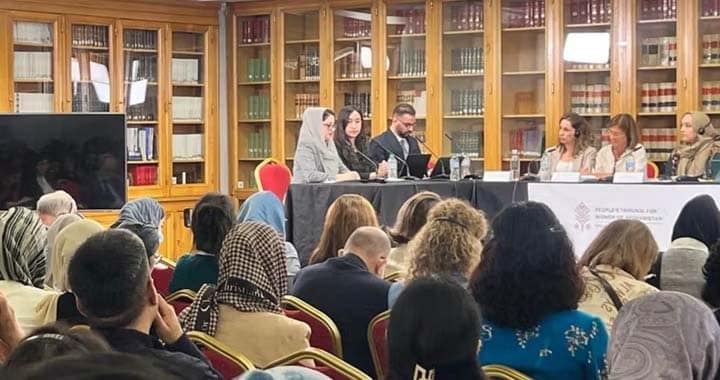Gianni Tognoni, representative of the Permanent Peoples’ Tribunal, opened the tribunal’s hearings by exposing the severe and systematic violations faced by Afghan women and girls under Taliban rule. He described these abuses as the gravest rights violations Afghanistan has witnessed.
Tognoni explained that the tribunal aims to “decolonise” the oppression, viewing the Taliban’s control as a transformation of Soviet-era colonialism into a modern “internal colonialism” enforced under the guise of religion.
While the tribunal has previously investigated abuses during the Soviet occupation, Tognoni stressed that the Taliban’s actions present an even deeper challenge to international law. He condemned the Taliban-imposed laws as crimes against humanity, carried out through repression and the denial of collective dignity and fundamental freedoms.
He emphasized that these laws do not only violate individual rights but deliberately target the collective rights of the Afghan people, with women suffering the most severe consequences.
A tribunal secretariat representative added that the Taliban have institutionalised systemic abuses by labeling women as “the other” and “the enemy,” rendering them voiceless and subject to extreme mistreatment.
These ongoing violations have severely damaged the credibility of the international community, compelling the Permanent Peoples’ Tribunal to bring the issue to global attention.
Tognoni warned that the suffering of Afghan women should not be seen in isolation, cautioning that such atrocities could set dangerous precedents for violations against women worldwide.
Recent Developments:
The United Nations has established an Independent Mechanism to investigate Taliban abuses in Afghanistan, highlighting growing international concern over the regime’s human rights record.
Meanwhile, recent Moscow talks on Afghanistan reiterated longstanding pledges but failed to resolve the ongoing issue of Afghan soil being used as a base for terrorist activity. These discussions have raised serious questions about the roles of the UN and India, as regional powers grapple with Afghanistan’s persistent instability under the Taliban.





